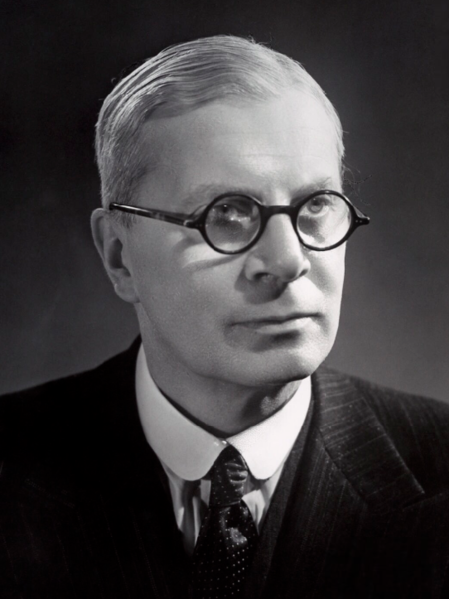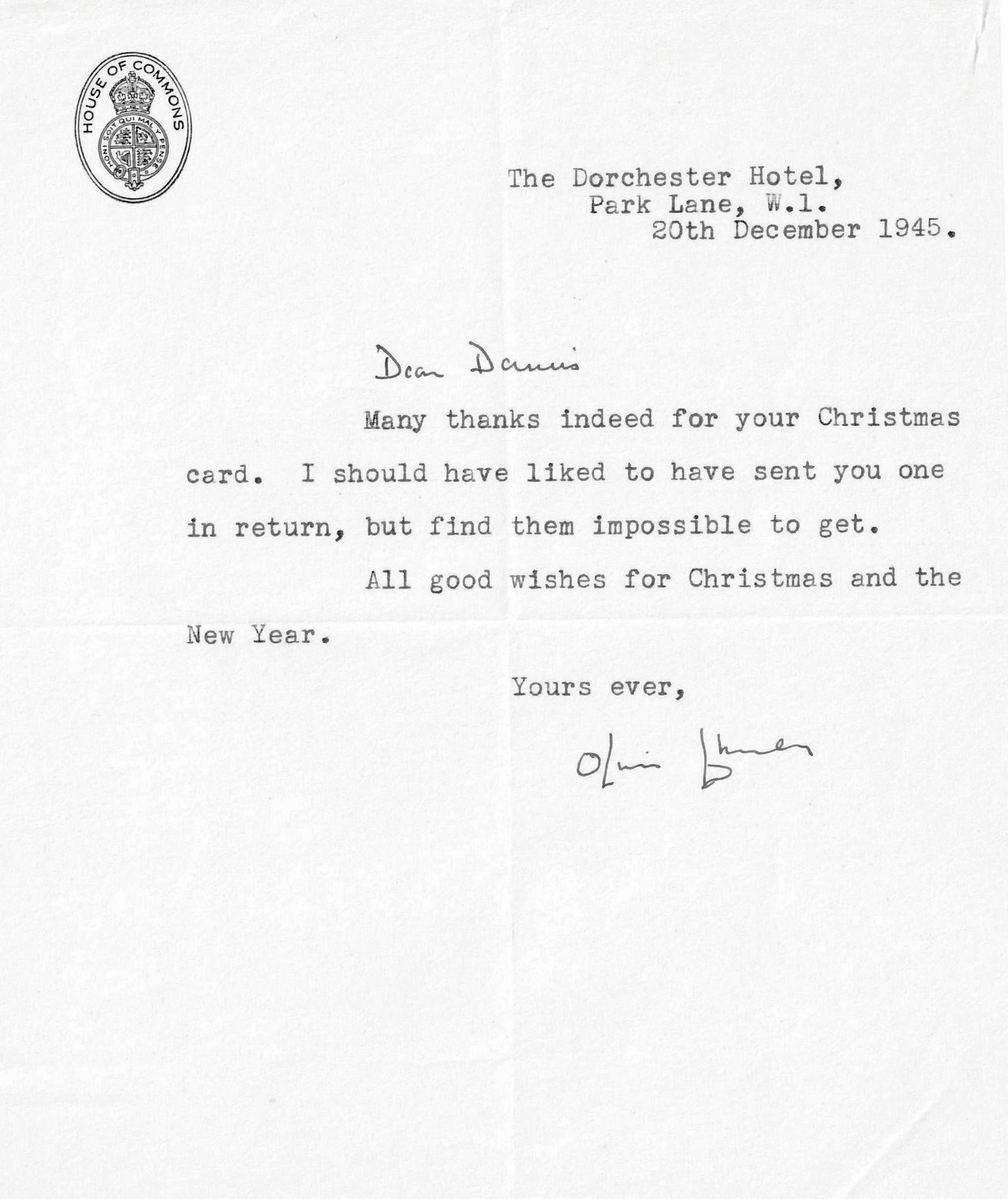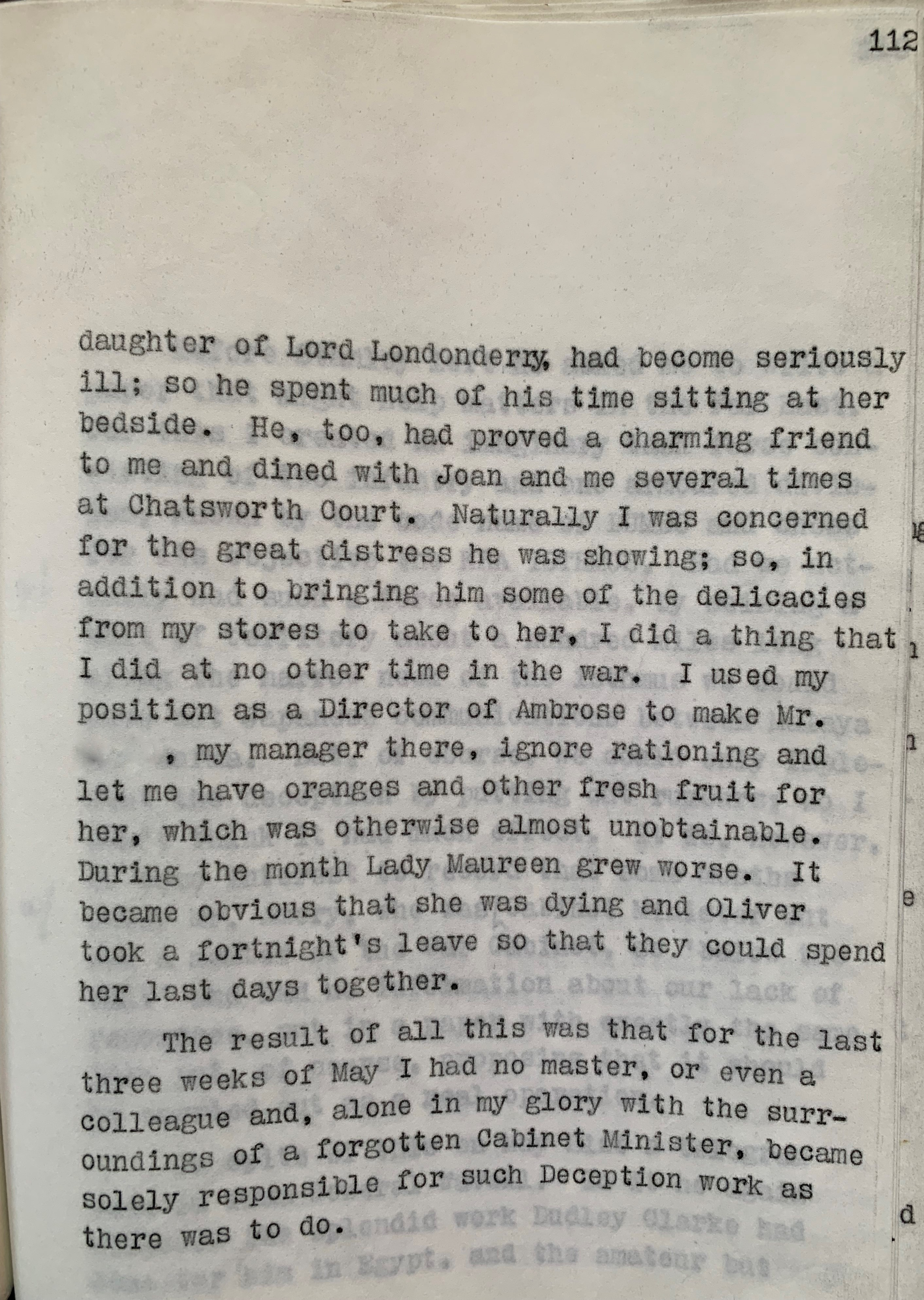
 |
Floor Plan |  |
The Dennis Wheatley 'Museum' - Dennis Wheatley in World War II: a supplement
The first step in the third phase: DW is made an officer in the RAF - and spends six months working for Oliver Stanley...

Oliver Stanley MC
Oliver Stanley's name may be little known now, but in British politics from the 1930s to his death in 1950, he was a highly respected and important figure.
Click on the image to enlarge
DW sends Oliver Stanley copies of some of his War Papers after his 'interview'
Click on the image to enlarge

In 1945 Stanley apologises to DW that he cannot get hold of a Christmas card to send to him
Click on the image to enlarge

In an unpublished portion of his memoirs, DW recalls how he broke rationing laws in order to give Oliver Stanley's dying wife a treat
Click on the image to enlarge
In an unpublished portion of his memoirs, DW reflects on how he might better have been used if he had continued doing the sort of 'consultancy work' he did for Oliver Stanley, rather than becoming a narrow 'Deception Planner'
Click on the image to enlarge
A year older than DW, Stanley was the second son of an Earl, and he had served as Secretary of State for War for five months in Chamberlain's administration; a post which had also been held by his father. Churchill offered Stanley the Dominions Office, which Stanley turned down, indicating a man who was very much his own master. Instead, Churchill made Stanley his personal link with the Intelligence agencies, and Stanley was appointed the first 'Controlling Officer'.
Late in 1942, Churchill appointed Stanley Secretary of State for the Colonies, and Stanley ceased to be responsible for DW. Stanley held the post until the end of the War. After Churchill's shock defeat at the Election Box in 1945, Stanley played an important role in re-building the Conservative Party until his untimely death in 1950 at the age of 54.
Although Stanley's name may be little-known today, he was an eminent figure of his day, and he had a reputation not only for his intellect, but also for his ability as a former barrister to sift quickly to the heart of any matter.
Historian Sir Charles Petrie wrote in connection with Stanley that:
"The greatest blow the Conservative Party has sustained since the late war was the premature death of Oliver Stanley. He was one of the most gifted men of the century, and would have made a very great Prime Minister. ..."
It therefore says a great deal for DW that Stanley was so eager to have him work for him that he not only recruited a civilian, but also had him fast-tracked into his Officers' Training Course, and the evidence suggests that they got on very well together.
Letters to and from Stanley are something of a rarity - both in the official archives and outside them - but what we have supports this. Indeed, in a portion of his memoirs that was never published, DW told not only how Stanley was from time-to-time his guest to dinner, but also - as can be seen from one of the exhibits - how DW broke rationing laws in order to give some treats to Stanley's wife when she was dying.
As can be seen from another of the exhibits, away from deception, Stanley used DW as a 'think tank' on a number of subjects, much as Darvall and his successor Vintras had done before DW was put into uniform.
DW enjoyed this, and however stimulating DW may have found his deception work, in his later work he clearly missed the intellectual breadth of that consultancy.
References : 'The Deception Planners' Chapters 1-4.
DW's unpublished memoirs, 'A' Chapters 7-11, 'B' pp 112-118.
Provenance : Private Collection

